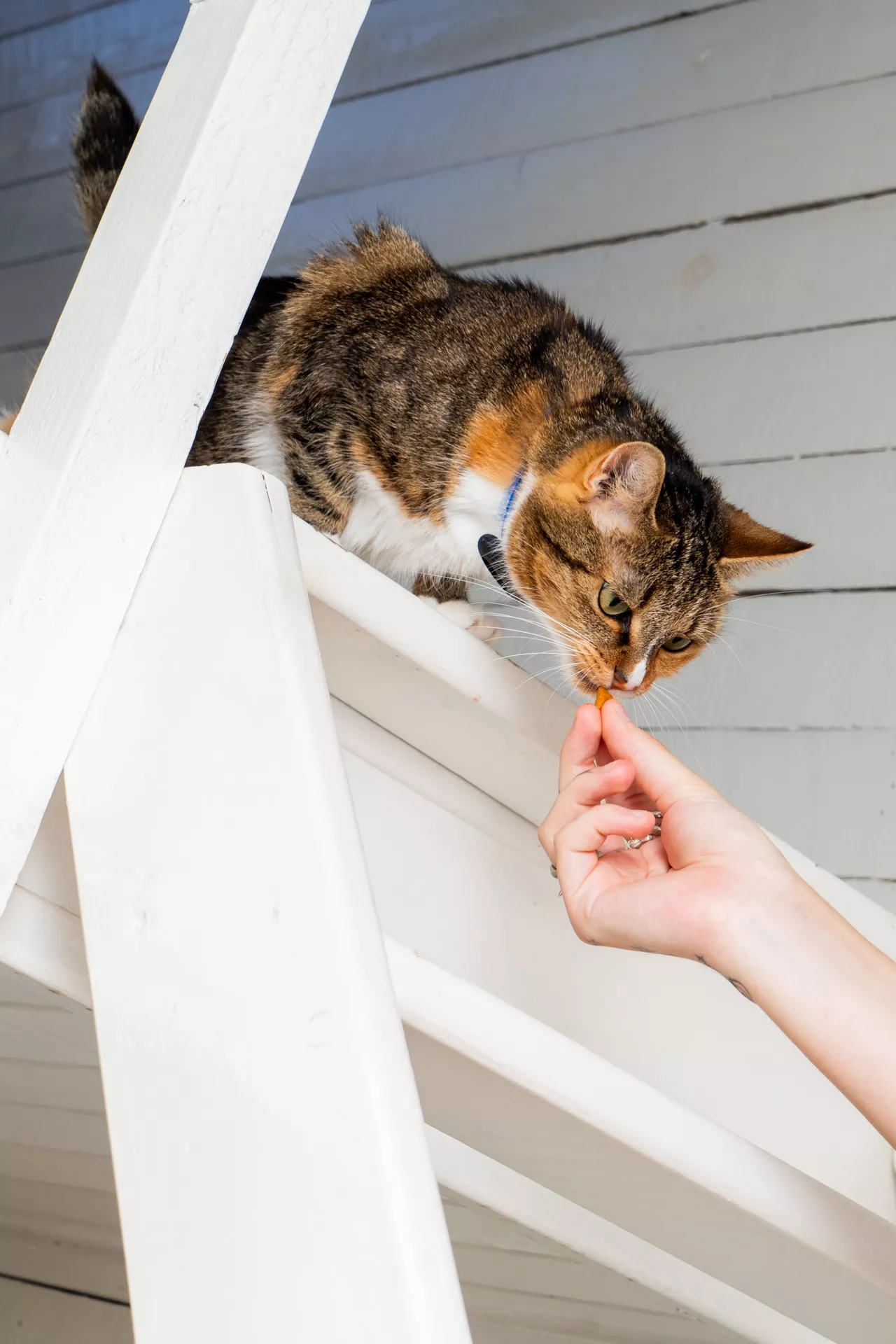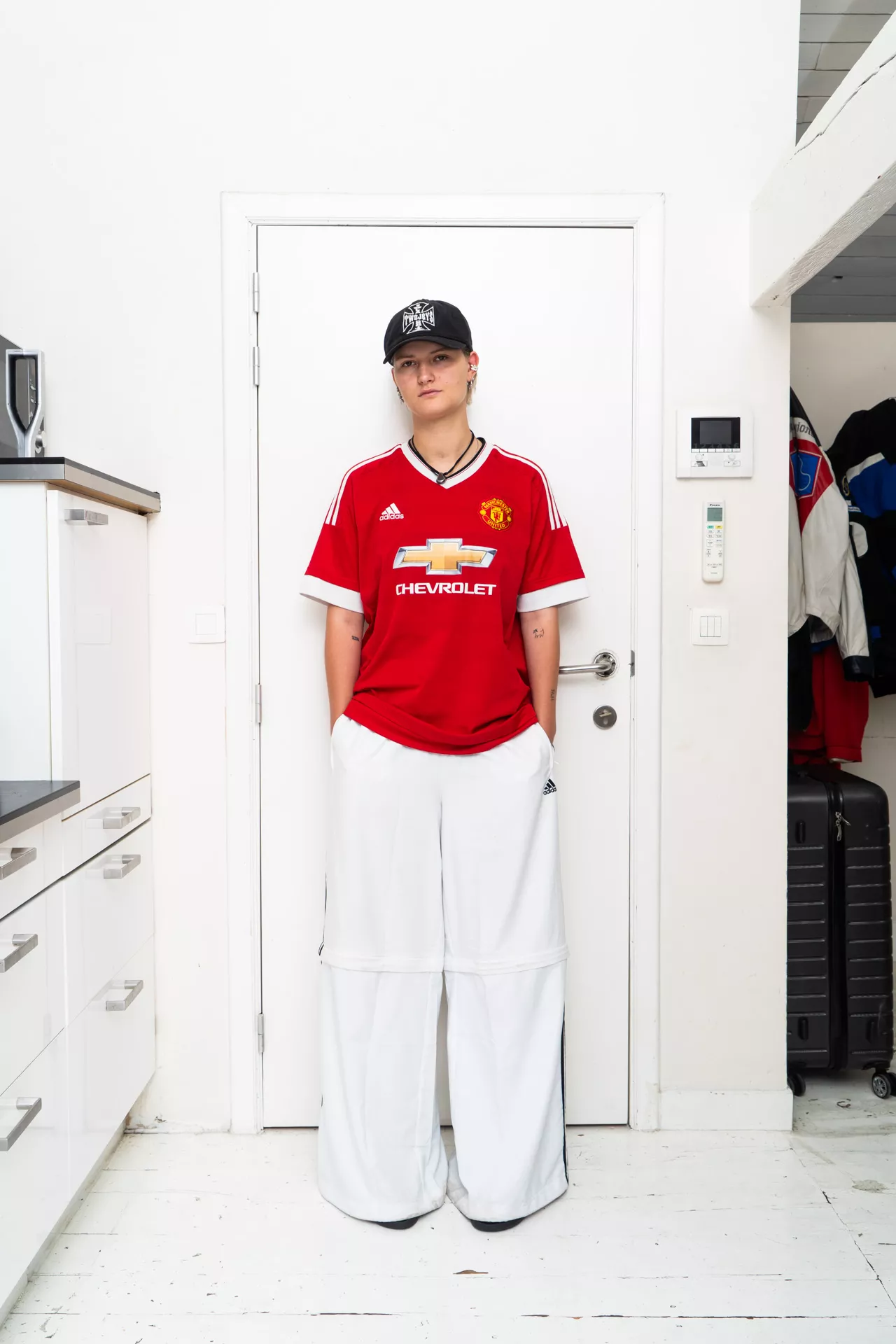Once a year, during Listen Festival, you can rave in the grand hall of Brussels Central Station. This year, the tempo is shooting up like a TGV, showcasing a cutting-edge selection of DJs and live acts for those who like their music on the harder side. Make sure to grab a ticket for the hyperpop of Promis3, the trance-fuelled sets of ur.trax, or Helena Lauwaert’s fast-paced house and UK garage. The latter was everywhere on the festival circuit this past summer—and rightly so. Her fresh, joyful sound makes you dance with a smile. Singing along is not a crime. We caught up with Helena for a proper chat.


In an article from the influential UK magazine Mixmag, your style was described as "rooted in UK garage, speed house, hard house, and speed garage." Would you say that sums it up?
Helena: Yeah, that’s what I’m playing right now, and it’s what I love most.
I’d love to take it back to your roots for a moment, just to understand how your sound has evolved. What was the first kind of music that really gave you that coup de coeur feeling?
Helena: The first electronic music I came into contact with was tech house. Like proper Ibiza-style tech house, what someone like Michael Bibi plays. That was almost ten years ago. I was 14, listening along with my parents in the car and at home. They were obsessed with that sound, especially the Ibiza classics. That’s when I started following DJs, making my own playlists, and buying compilation CDs.
How did you make the jump from music lover to DJ?
Helena: At one point I just realised—wait, I could do this too. Just like the big DJs I was following. So I bought myself a mixer, a tiny one at first—a Hercules—and started practicing like mad. I even took a DJ camp at the DJ school in Ghent.






With Benoelie from the legendary duo Mo & Benoelie aka The Glimmers?
Helena: Yep, that’s the one. I’ve signed up again actually, this time for a music production course. That first course really set me on the right path. I had already learned bits from YouTube tutorials and from friends, but that was definitely a turning point. Not long after, I managed to get a better mixer and some proper speakers. I had a mobile setup and started gigging around—playing Sweet Sixteens and small parties for friends and family.
That's brilliant! That’s actually how I started out too. And fun fact—the very first DJs in Belgium back in the ’60s were mobile DJs, just like you. But anyway, how did things evolve from there?
Helena: My biggest love was still house and tech house. I’d try to sneak in some of my favourite tracks during sets, but at Sweet Sixteens you’re playing for a broad crowd, so I had to throw in singalongs too. The mixes I recorded at home were always tech house though, and I started uploading them to SoundCloud. At one point, I was dropping a new mix almost every week.
Eventually, I got my first shot at playing in a bar: De Baron in De Pinte. My dad knew the owner, and they gave me carte blanche. I could play what I wanted, and they kept inviting me back. Not long after that, I won a DJ contest, which led to gigs at Charlatan and Decadance in Ghent. I was 18, fresh out of high school, and it all felt like it was about to take off, until Covid-19 hit.
Right… You're part of the generation for whom the pandemic hit right at that crucial moment, just as adolescence turns into something bigger. How did you deal with that?
Helena: During the pandemic, I just kept making DJ mixes and sharing them online. I also did livestreams, my friend would film me while I played. I really just wanted to stay relevant, and honestly, that paid off. People kept remembering me, and I even reached a whole new crowd that way. Sure, back then it was still mostly smaller collectives and events, but still, it was one of many small steps I needed to take to grow. Success rarely comes overnight. It’s something you have to work at consistently. And then, out of the blue, Decadance asked me if I wanted to become a resident DJ.






So if I understand correctly, the tempo of the music you play gradually got faster over time? What sparked that shift?
Helena: After the pandemic, I was finally of age and could go to the clubs and raves I’d always dreamed of, places like Kompass in Ghent, or Amelie Lens’ party at the Atomium in Brussels. That’s how I discovered techno. Going out so much gave me loads of inspiration. At one point I was clubbing almost every week. And sometimes I’d just go on my own, because none of my friends were into techno the way I was.
That’s when techno started creeping into my DJ sets. At first, I’d do either a straight-up techno set or a tech house set. But eventually, I found this middle ground by speeding up house music. And that’s when everything clicked for me. It was like coming home. It literally happened overnight. I saw a DJ using the pitch control, bumping it up to +6, +10, +16 or even higher. I was already pitching tracks up, but discovering that function opened up a whole new world for me. The next day I tried it out at home, and everything just sounded right.
That’s beautiful. You know, in the ’80s Belgium gave birth to an entirely new genre—new beat—by slowing everything down. But you’re doing the opposite, speeding things up! I hear a kind of lightness in your style that you don’t usually find in techno. Something more playful—more house than techno, maybe?
Helena: Yeah, my style’s way more upbeat, not too dark. I love vocals too—not necessarily famous ones, but just having a female voice in a track always does something for me. If I can sing along, I go totally wild. Lately, I’ve also been super into UK Garage. That’s my latest big love!
You throw a queer party under the name Loose Legs. Great name, by the way. What does being queer mean to you?
Helena: When I was 16 and just starting to go out in Ghent—still in the closet at the time—I had to make do with the Overpoort nightlife district. I never felt at home there. People would stare at me all the time. I remember not even being let into some clubs just because I was wearing track pants. But that’s what I liked, that’s what made me feel good.
Then, when I finally turned 18 and could go to the bigger clubs, that’s when I really found myself. I could wear whatever I wanted. People were kind to me. No one stared. To me, being queer means being able to go somewhere where no one looks at you sideways. A place where you can just be, and do whatever you want. Unfortunately, that’s still not a given everywhere.
I also realise I’m privileged in a way, because I’m white. So things have been a bit easier for me compared to others in the queer community. With Loose Legs, I want to create a space in Ghent where every shape, shade, and story is welcome. A place where everyone can be themselves. And I want to do it with the music I love, because that was still missing in the scene here.
Queer is also, if I may continue the conversation with you, about resistance, about pushing back against the status quo. You’re creating a space for others who also fall outside the norm. You’re building community. Would you say that’s accurate?
Helena: Absolutely. When I meet other queer people, it just feels right. When you’re in spaces filled with queer folks, there’s this instant connection, because everyone knows the same struggles. Those are also the places and moments where people can really let go, even if just for a while.


Do you feel—especially now, with the kind of cultural war we’re living through, where left and right are constantly clashing—that community is more important than ever?
Helena: I’m really struggling with everything that’s going on right now. It makes me feel awful. Being able to come together with people who share your values can bring a lot of peace. Because honestly, what’s happening is just so sad.
We keep protesting, keep boycotting, but no one’s listening, it’s incredibly frustrating. I feel powerless, every single day. And I constantly have this sense that I should be doing more, that I must do more. But sometimes, I’m just completely drained too.
You wear a Palestine t-shirt at Pukkelpop, or you post the Palestinian flag on your Instagram—you speak out and use your platform, yet you still feel like it’s not enough?
Helena: I sometimes feel like the people who do protest—who are already part of a minority—often end up putting themselves at risk just by raising their voice. While those with all the privilege stay silent. I had my t-shirt ready for Pukkelpop, but when I saw that the festival itself released their own shirt in support of Palestine, it meant a lot. I wasn’t scared anymore to speak up. That’s what more people and organisations should be doing.
Fully agreed. Thanks, Helena. See you in the main hall at Brussels Central during Listen Festival!





